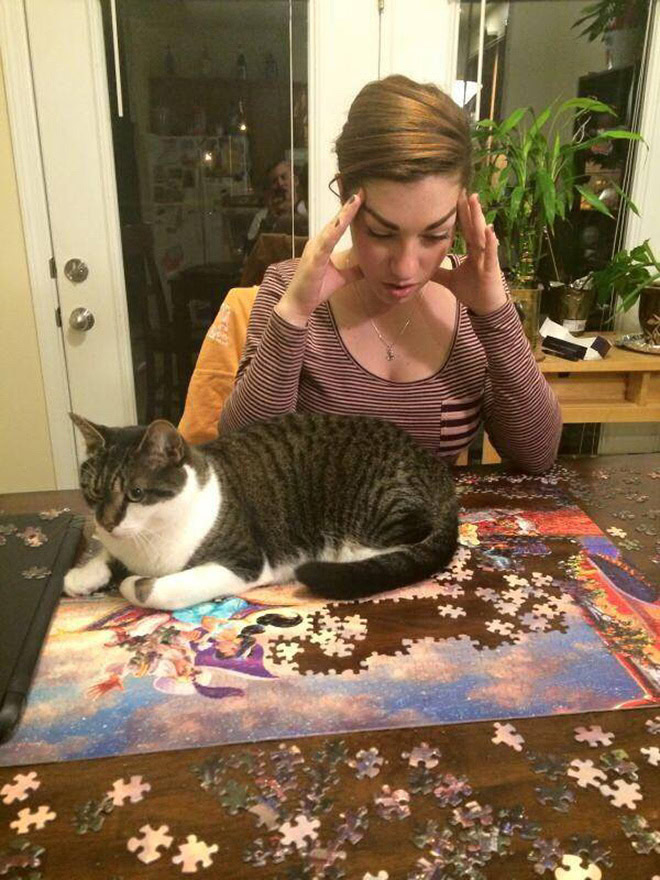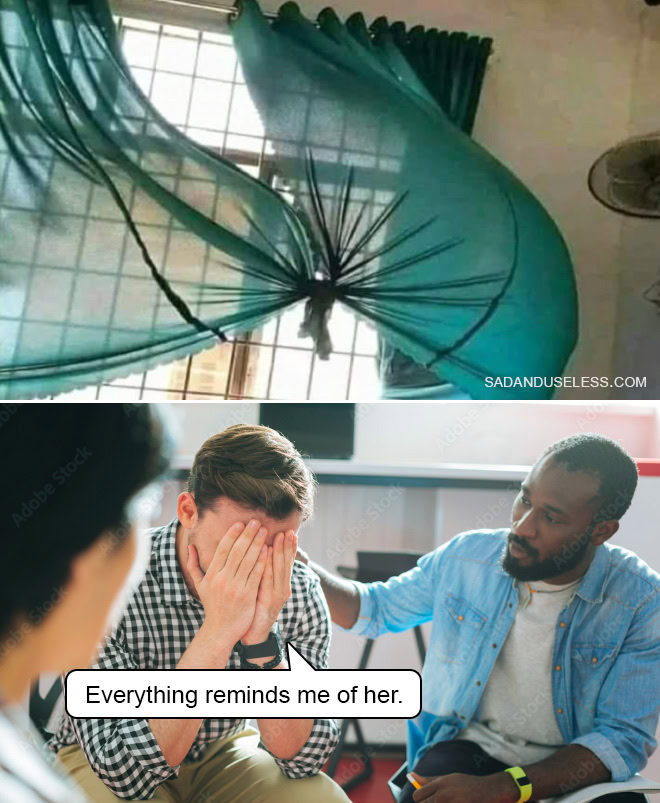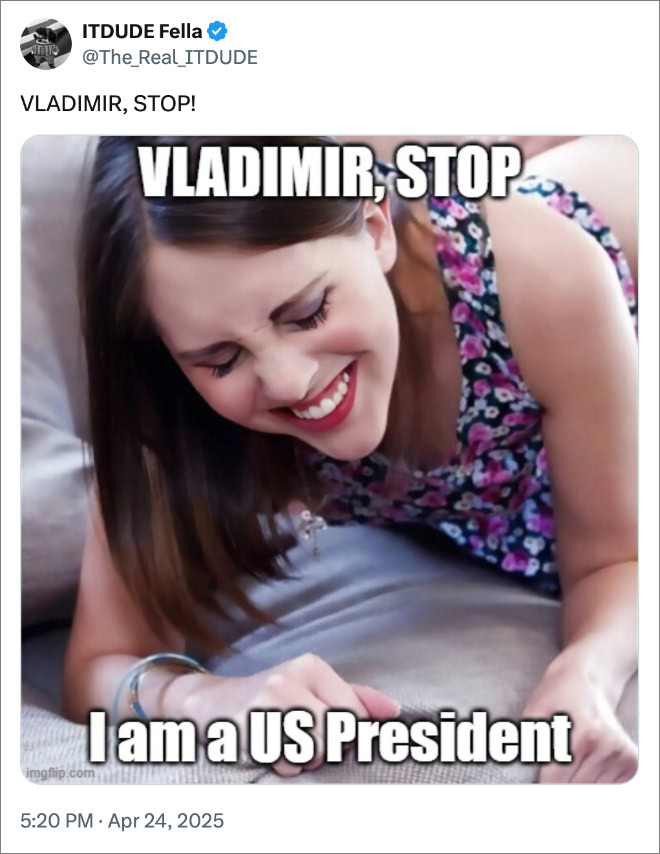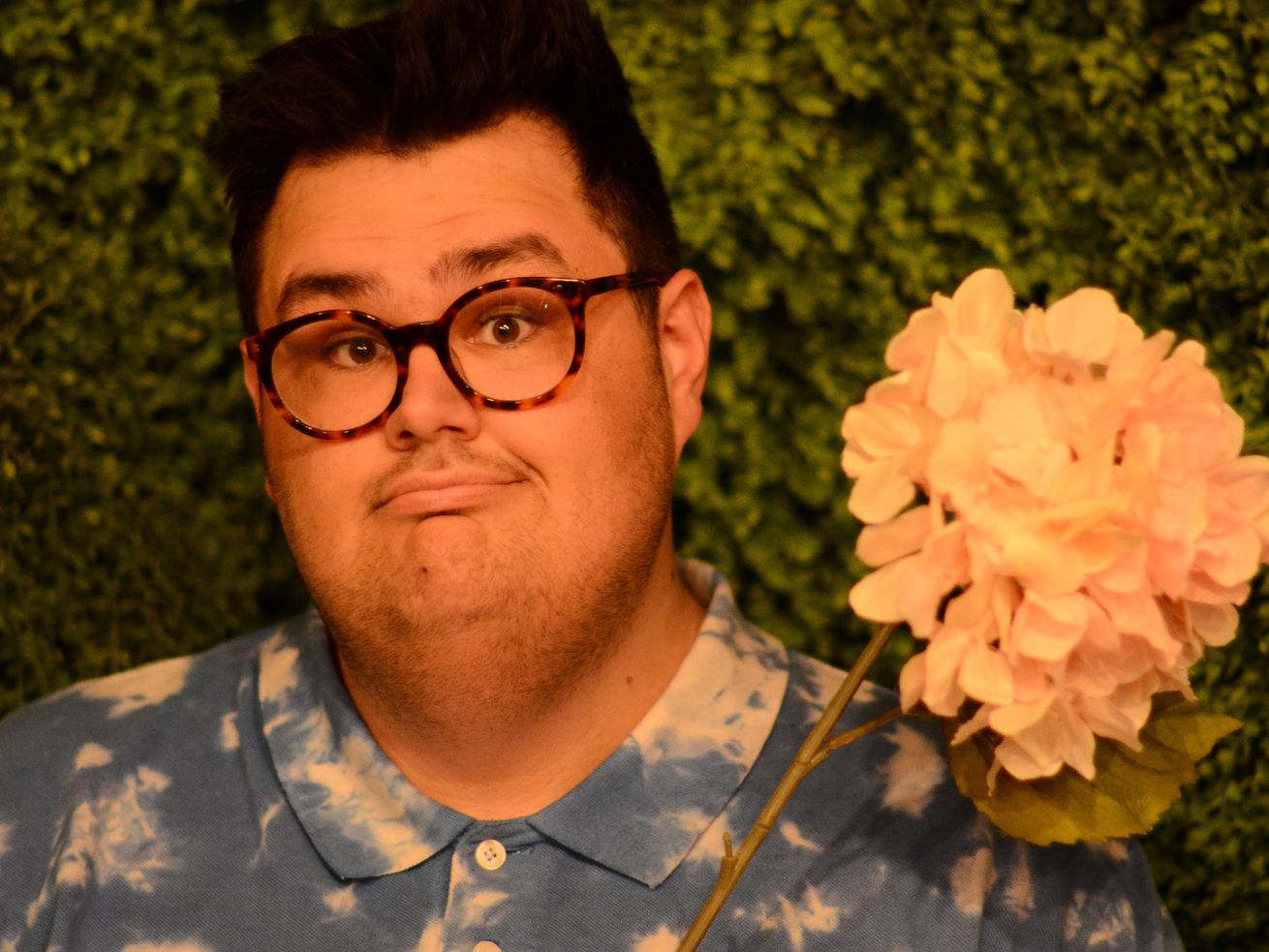
But perhaps even more importantly, he’s got some really vital things to say about masculinity and existing as a man in the world
Caleb Hearon is a comedian, writer, and actor based in Los Angeles, California. He spoke with Funny Or Die over Zoom to discuss his career, the importance of representation in media, and masculinity in comedy.
This interview has been edited and condensed for length and clarity.
Thank you so much for joining me! For the people in our audience who may not know you yet, what’s your origin story?
Who, me? I grew up in Missouri in a really small town, and I always did this thing where I was like, “I’m conversationally funny, but I could not be a comedian,” and I told myself that for a long time. I went to school to study Socio Political Communication. I thought I would go to law school after that. A year or two into undergrad, I was like, probably not law school, maybe grad school of some other kind. Then I started doing improv on campus and I really liked it. I thought maybe I’d move to New York after college and do comedy at UCB, but a bunch of my friends from the college improv team started talking about moving to Chicago, so I moved to Chicago with them and started doing characters and sketch.
 Courtesy of Caleb Hearon
Courtesy of Caleb HearonAnd the next step was moving to LA?
Yeah, I moved to Chicago right after college in 2017 and I just moved to LA this past summer.
How’s that been in the middle of the pandemic?
It was so weird, dude. My roommate and I, Shelby Wolstein — also a brilliant comedian — drove out with our moms. We took a moving truck and both of our cars and drove across the country. It was crazy. Some places were taking [COVID] really seriously, some places weren’t. When we got to LA the city was on like a 2:00 PM curfew because of the demonstrations for Black Lives, which is obviously net positive, it was just a weird time to show up to the city.
Before COVID you were doing a lot of live shows. How has the transition to mostly, or, I guess, all digital content been? Has that posed any kind of creative challenges or has that changed your process at all?
No, I had been in Chicago for a couple years doing live shows, live improv, live stand up, sketch, and then, about a year ago I spent some time screen testing at SNL. It came up during that process that I should be doing online content. I maybe had 4,000 followers or something [on Twitter]and I tweeted about politics and stuff, but I was putting zero comedy videos out. But, before the pandemic even started, I didn’t get that job. Then it was like, okay, I’ll put comedy videos online. I’ve got stuff to make.
I started putting character videos on Twitter and it just went kind of crazy, it got a lot more attention than I expected. So I already had this new thing where a bunch of people were starting to know me for internet content, but that’s not the bulk of what I was doing or felt like my comedy was. There’s nothing wrong with exclusively doing digital content, but that wasn’t the biggest part of what I was doing. So trying to pivot that to, “Come to my live shows,” and figuring out how to harness the energy of digital to sell tickets and get people to come out was already something I was working through, and then the pandemic hit and it was like, this is what you have, this is what we’re doing. It was weird, but my followers just kept going up because everyone was turning to digital to be entertained and hear about what’s going on. Anybody who had even the tiniest head start or [was]making online comedy content immediately started doing better.
I remember seeing your character POV videos from last year and I was like, “I cannot believe that I have not been following this guy the entire time.” You are so fucking funny—
Thank you! What if I started crying? What if I started sobbing when you said that?
That would be the whole interview, that’s all I’d use.
Completely embarrassing. No, but thank you. That’s very sweet. I appreciate it.
Recently, during the stupid “does this look like an appropriate father-son relationship” discourse around that photo of Joe and Hunter Biden, you tweeted about masculinity and how, unfortunately, such a big part of masculinity is weaponizing trauma against other men to keep them in place.
This is a pretty gigantic subject, but I want to talk about masculinity in comedy. And if, or how that masculinity that you’re describing has impacted not just your career in comedy, but the kinds of things that you make.
Sure. Yeah. It’s funny to me when something like that tweet gets a lot of attention because… I love academia, I like research, I loved writing papers in college, going to grad school would be very fun for me. So, I’m constantly fighting off the urge to tweet things that are kind of essay-ish because it’s not what I ultimately want to be doing. I enjoy it. But, ultimately I want to be a comedian. I want to make people laugh. But every time I tweet something like that, it does get a good response, and I’m always like, “Is that because I don’t do it as often?” Is it a break in form from a goofball who usually tweets out dumb shit, or is it that actually my voice in a way? I don’t know. But yeah, masculinity I think about all the time. I grew up gay in Missouri and it was not perfect, but I wasn’t worried about my family, I knew they were going to be cool.
The hardest thing for me about coming out was I was worried that I wouldn’t have any more male friends.
Male friendship has always been very important in my life and still is. And that’s not an image that you get a lot for gay men. You don’t see a lot of gay men that have male friends in media because we’re always the bitchy sidekick to whatever woman is on a shopping spree. Except Neighbors 2, I will say, had a very healthy and positive depiction of male friendship that included gay men.
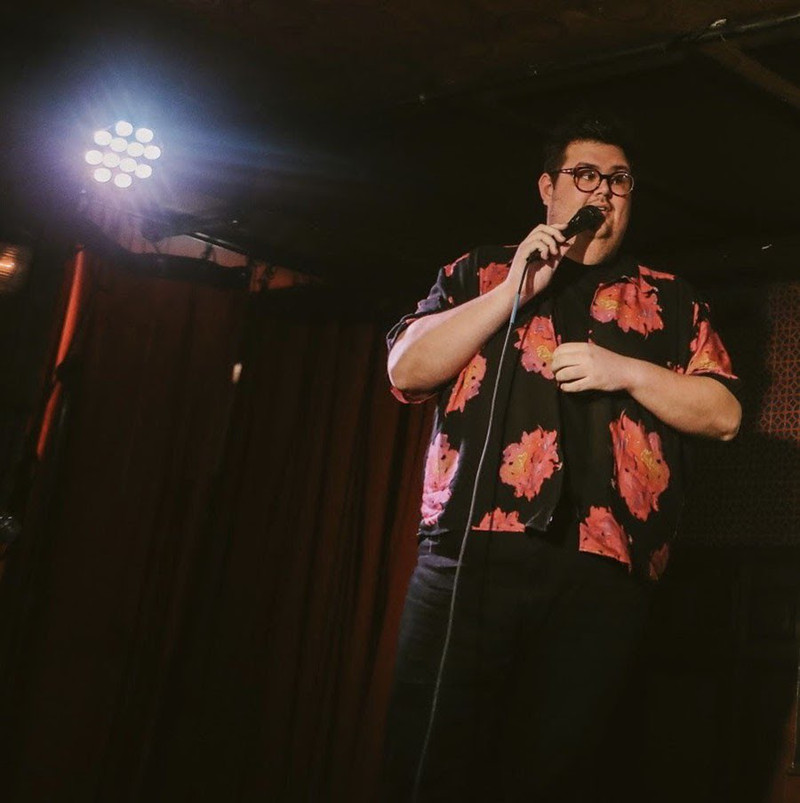 Courtesy of Caleb Hearon
Courtesy of Caleb HearonI wasn’t out when I went to college and I joined a social fraternity and was in it all four years. I learned a lot more about the kind of macho masculine guys that I would have been so scared of had I not had that experience, and for good reason. A lot of times those dudes are dangerous, bad people. But, I also learned that a lot of the guys that posture are really, genuinely sweet guys who have depth and complexity, who are just replaying this trauma of being a man in our stupid, fucked up society. I watched a lot of guys come in as just huge assholes. I would meet these guys and be like, “You fucking suck, dude.” And then, through friendship and growth and learning, by the time we left, they were better guys, and so was I.
I think it’s really interesting, the effect that healthy male friendships have, telling your male friends that you love them, hugging each other, talking about relationships and the ways you feel about them and not just who you’re fucking.
Those things, and having those kinds of outlets, really aren’t available to a lot of straight men or a lot of traditionally masculine men. But when it becomes available, you see people start to break free and challenge those ideas around What Does It Mean To Be A Man? Can I be gay? Can I be sexually fluid? Can I talk about my feelings when I’m not just feeling angry, when I’m feeling other things? What does all of it mean? Breaking those molds requires some work, and some friendship that isn’t always available. Do you know what I mean?
Totally, yeah. When I see your character videos, there’s some kind of link there between comedy and tradition and what’s expected in the kinds of scenarios you act out. When you were saying, “Do people like my serious tweets because they’re just off-brand for me and it’s refreshing or is that actually part of my voice?” I think that both are probably true.
Do you see yourself someday, wherever your career goes in the future, bringing those examples of healthy male friendship to the media where it’s missing, or helping to push that to audiences in some way?
Sure, yeah. On my development slate right now there’s not any projects that I think go straight to that point, but platonic male friendship is something I talk about all the time in tweets and I think it’s important. A lot of men are missing out on it. A lot of gay men are missing out on it for reasons that are not just that they don’t want it. I think a lot of straight men, a lot of macho dudes are missing out on good, healthy, deep male friendships and don’t realize it.
A lot of straight guys don’t even realize that they are deeply in love with their friends, and not romantically.
I think that’s a hacky trope that comes out of a truthful thing, which is that a lot of straight men have so much more love and reverence and respect for their friends than they do for women, which is a problem in its own right. But, they don’t realize it. They think, “Oh, that’s just my boys.” And it’s like, no, there is something so deep here, you’re only real with these people, and if you could understand that, conceptualize that… It’s social penetration theory. You know what I mean? If you would let other people, maybe the women that you’re dating or your mother, or just random women that you work with… If you would let other people who weren’t just your boys access your feelings in similar ways, you would be a less toxic person moving through the world.
But because so much of that’s just relegated to, “Oh, they’re my boys. Sometimes we get drunk and we talk about our feelings or whatever,” to this nothingness, then you can’t place it, understand it, and replicate it in other relationships. That’s why, I think, so many men who are traditionally masculine, which usually is associated with heterosexuality, can’t function in other relationships very healthily — because we’re just not talking about it very much. The men in my family are certainly not impeccable with emotion that isn’t anger. I think it’s just something that we all should be talking about.
And, I have a ton of guy friends who I don’t really see on screen.
There are a ton of straight guys, gay guys, queer men, people across the spectrum who are masculine, fem, and otherwise, and have very healthy relationships with different types of men, it’s just not portrayed. I think the people who make stuff assume that somebody who wants to sit down and watch a “boys comedy” or a “boys whatever”, doesn’t want to see certain things. That’s why I brought up Neighbors 2 with Seth Rogan and Dave Franco, Zac Efron, all those guys. I thought it was really brave and cool to make Dave Franco’s character gay, and for John Early to propose at the boys’ poker night. I thought it was a depiction of male friendship that was at once silly and macho and goofy, but also healthy and loving and supportive. I don’t see a lot of that and I don’t know why. So yeah, I do want to see more of it and I would love to be part of it.
Like you’re saying, the people who are making those kinds of movies or shows assume that audiences don’t want to see that, but that’s all anyone is asking for, is more of those kinds of stories and more of that kind of visibility. So, it’s kind of ridiculous that we aren’t already at that point, but it’s good to see people like you being active and outward on social media and normalizing things like just telling your friends that you love them.
Well, I will say too, I think men need to do the work for ourselves. When I say we need to love men, we need to give men the room to be loved, to be sad and to be upset and many things that aren’t just angry, I think that’s men’s job.
I think women and fem people in general have been doing that for long enough.
I’m always cautious about talking about stuff like that because I don’t want it to seem like I’m like, “Every fucked up, toxic, bad dude is just misunderstood and didn’t get enough hugs.” That really is not the case. Some people want to stay in that and they’re not looking for a way out of it. So, it goes both ways, I think.
You’ve done so many different kinds of things. You’ve done stand-up, all different kinds of live shows, writing, now all this digital content. I don’t want to ask the standard ‘what’s next for you’, but where do you want to go from here? Are you looking to get more back into live shows once quarantine is over or are you going in the writing direction?
You know, I want to do it all. I think it’s such a cop-out when people ask me, “What do you want to do?” I’m like, “Everything!” But I do. I think there are phases to that. I’m learning so much right now and I hope that I’ll have, if I’m lucky, a really long career of just learning all the time. Right now I’m learning how to write TV in my first TV writer’s room. I’m learning how to write a screenplay for an idea that I’m really excited about, I’m writing my own sketch show and hopefully I’ll get to do that. But, I consider myself first and foremost a writer, a performer. Eventually I’d like to direct and produce and I have kind of a Steve Carell, Jonah Hill desire to go and do dramatic movies that maybe people wouldn’t expect.
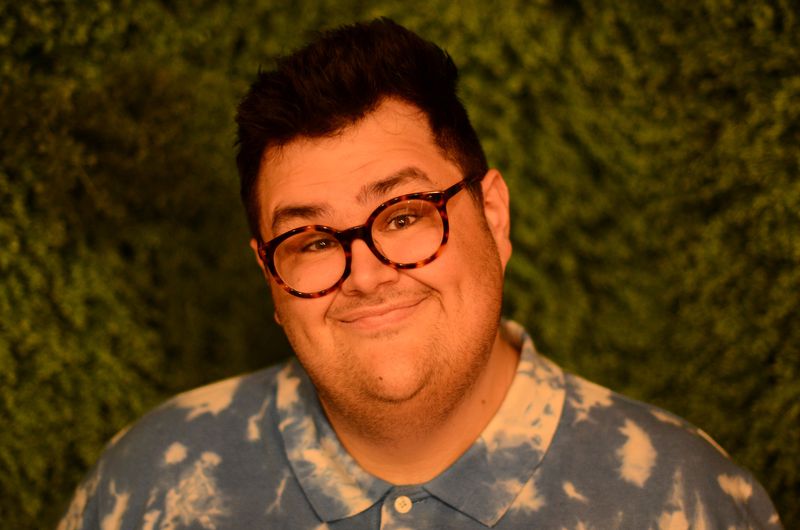 Courtesy of Caleb Hearon
Courtesy of Caleb Hearon
I want to do whatever I can be doing, but I think the most important thing is just learning each step of the way.
Right now, the big thing that I’m focusing on is learning how to write TV. Specifically, kind of a raunchy animated series. That’s a really fun way to learn because there are so few restrictions. We can kind of say whatever we want and there are no real world constraints because it’s animation. I hope that it’ll lend itself to whatever I do next, and just keep building towards the point where, if I get really, really lucky, I get to do whatever I want with people I like.
Do you have anything to shamelessly plug for everybody?
The show I’m writing on, Human Resources, will come out more than a year from now so that’s quite a ways away. Follow me on Twitter and Instagram and I’ll post stuff there as it comes. I’m starting to do some distanced live shows in LA, which is fun. And, hopefully, we’ll get to do that in other places soon too!
While everyone is still in quarantine, do you have any recommendations for movies or shows or podcasts or books to keep entertained?
Oh, gosh, I don’t know how I could forget this but Shelby Wolstein and I are putting out a podcast soon. So, listen to that when it comes out and we’ll tweet about it. If you haven’t watched Righteous Gemstones on HBO, it’s fucking amazing. I’m in love with it.
If you know me, I watch everything A24 does cause I’m an A24 slut. And you can make that the headline.
I love 20th Century Women. I’ve been rewatching a lot of stuff like Something to Talk About and My Best Friend’s Wedding, old Julia Roberts movies. I find those very comforting right now.


